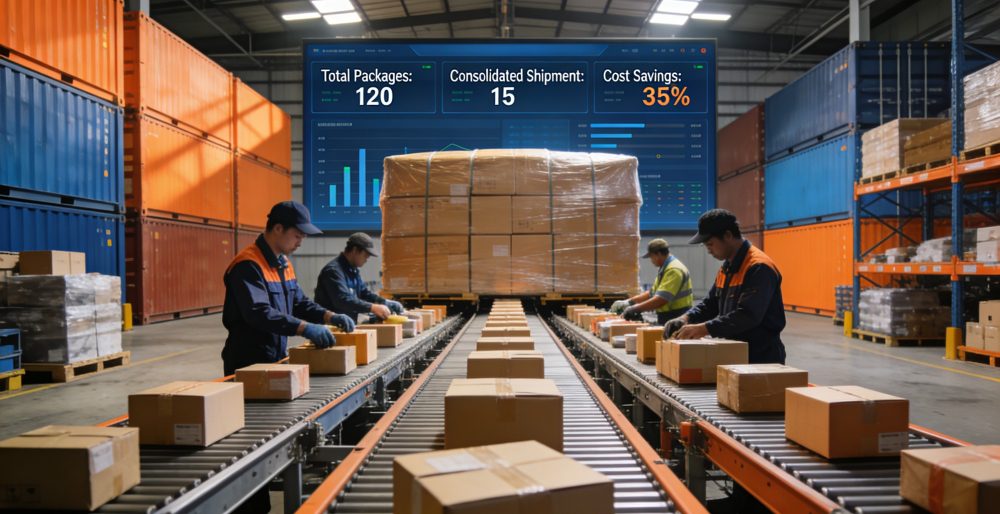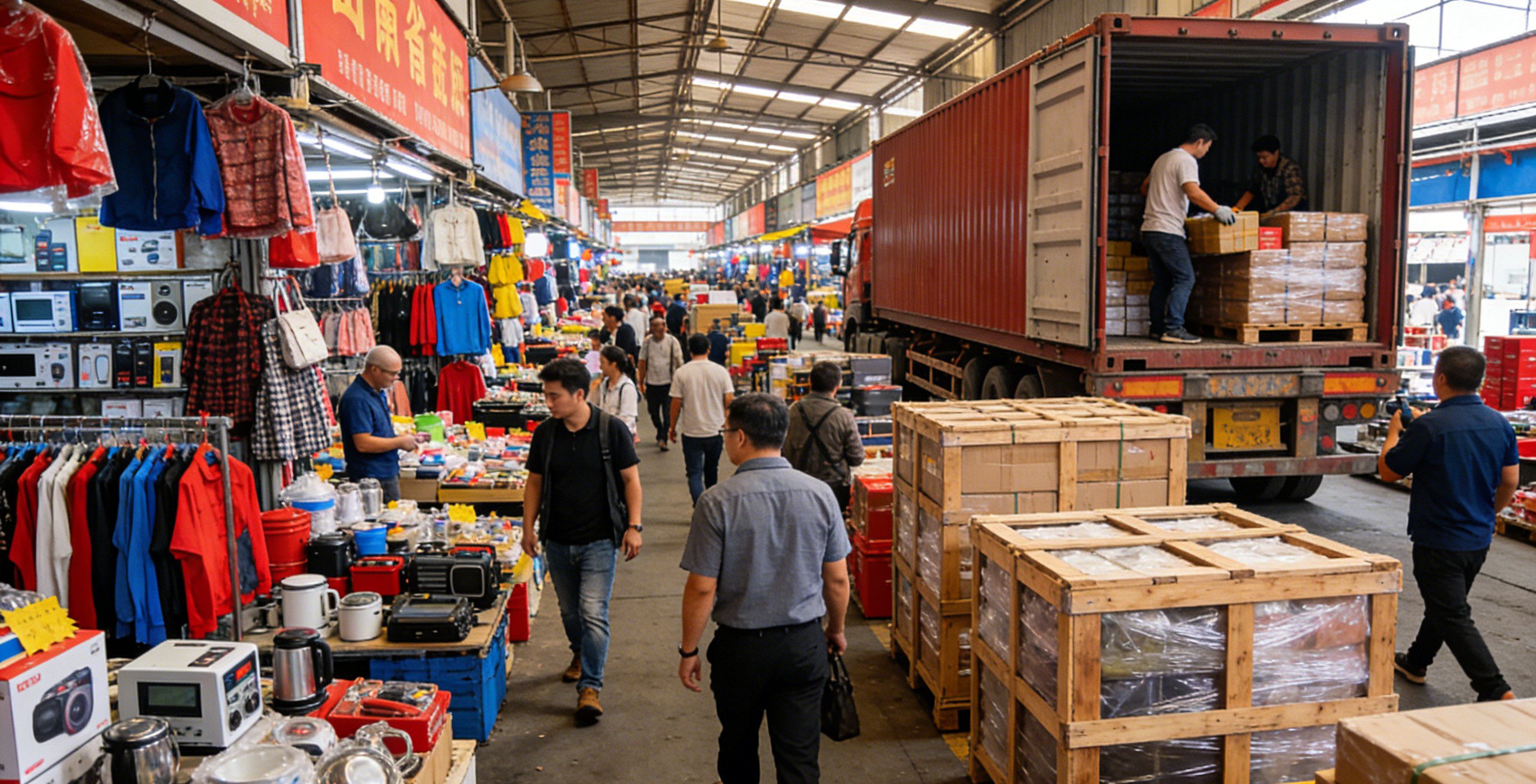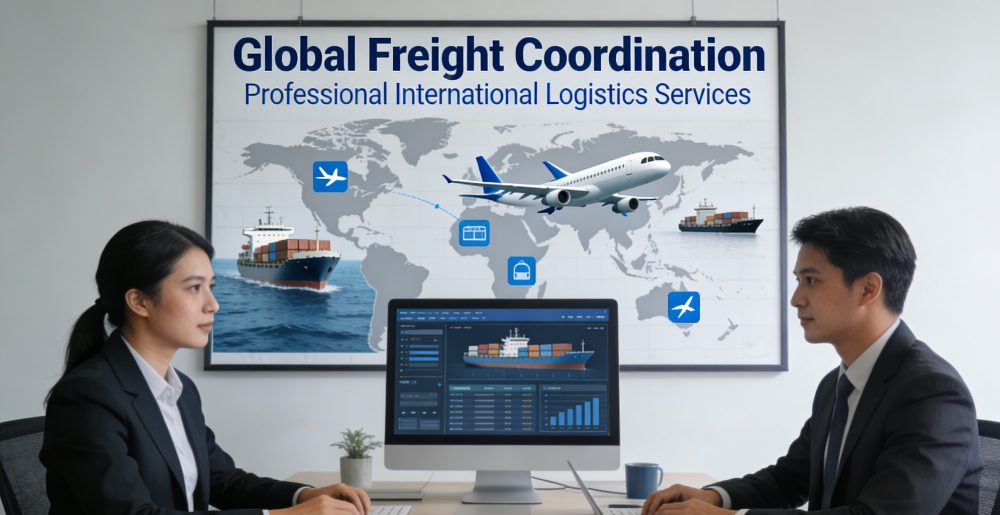BLOG
FOB Shipping: FOB Shipping Explained: Everything You Need to Know
- wanmeili
- 2025-05-08
Introduction
FOB shipping (Free On Board) stands out as a critical concept that every business and trader should grasp. This essential term shapes the framework of responsibility, ownership, and liability during the shipping process. It helps to clarify which party bears responsibility for the goods at various transit stages.Given complexities of international shipping, understanding FOB terminology is paramount in avoiding confusion and potential disputes between buyers and sellers.
Mastering FOB shipping is not just beneficial; it’s necessary for anyone looking to navigate the intricate landscape of commerce. Whether transporting goods across borders or domestically, a thorough comprehension of FOB rules can safeguard your interests and streamline operations. As we’ll explore in this blog, grasping the nuances of FOB shipping will empower you to make informed decisions and foster smooth transactions in the competitive world of logistics.
What Does FOB Shipping Mean?
What is FOB in trade? Simply put, FOB shipping stands for “Free on Board”. It’s a term that determines the point at which the responsibility for goods transfers from seller to buyer during transportation. In the context of shipping, FOB indicates that the seller bears all costs and risks for moving the goods to a specified location, typically the port of departure. Once seller loads goods onto transportation vessel, responsibility shifts to buyer, who assumes liability for any costs or potential loss.Depending on the agreement, FOB can vary in meaning: FOB Origin means the buyer takes responsibility once the goods leave the seller’s premises, while FOB Destination indicates that the seller retains responsibility until the goods reach the buyer’s locationUnderstanding distinctions is crucial for anyone involved in trade, as it helps clarify obligations and liabilities in the shipping process.
FOB Terminology: Key Concepts You Should Know
The Shipping Point
FOB shipping point means that the seller fulfills obligations once they load the goods onto transport vessel at their location. At this point, the buyer assumes ownership and responsibility for the items, meaning they also bear any risks regarding transportation. This arrangement particularly matters for businesses because it can influence shipping costs and insurance considerations.
FOB Destination
FOB Destination alters the landscape of responsibility and risk. With this arrangement, the seller retains ownership and responsible for all costs and risks until goods reach buyer’s specified location. The shift of risk and cost at destination ensures that sellers assume potential losses during transit, providing security for buyers.
Comparing FOB point with FOB destination, it’s clear that the former puts the onus on the buyer right when the goods leave the seller’s premises.on the contrast, the latter protects the buyer by keeping the seller accountable until the goods are safely delivered.
Why FOB Shipping Terms Matter in Freight Agreements
Knowing FOB delivery terms is paramount in shipping ocean freight agreements as they determine who holds responsibility for the goods. Before finalizing any deals, clarity on these terms helps parties establish their respective roles and liabilities. Misunderstandings regarding FOB can leave a party with unwanted liability for damages or costs they did not prepare to handle.Thus, having a comprehensive grasp of freight terms ensures seller and buyer aligned on risk management, facilitating smoother transactions.
Choosing between different freight terms also has significant implications for insurance, liability, and overall cost. For instance, under FOB freight point, the buyer is responsible for insuring the goods as soon as they leave the seller’s premises, potentially leading to higher insurance costs or exposure to risks during transit. Conversely, FOB destination places the risk on the seller until the goods are delivered, allowing the buyer to receive the products without the added worry of damage during transit, often resulting in fewer costs incurred. Lack of clarity in FOB can lead to common risks, including unexpected shipping fees, unauthorized liability, and disputes over damaged-goods. In this light, it becomes evident a clear understanding of FOB is essential for successful and financially sound shipping operations.
Other Freight Terms Meaning Related to FOB Shipping
Understanding other freight terms related to FOB shipping is crucial for navigating international trade. CIF (Cost, Insurance, and Freight) and DDP (Delivered Duty Paid) define responsibilities of sellers and buyers during the shipping process. Each term delineates different levels of risk, cost, and responsibility, impacting how transactions are conducted.
Comparing FOB and CIF
When comparing FOB shipping to CIF, the responsibilities of each party vary significantly:
FOB (Free On Board): The seller is responsible for the goods until they load them onto the transport vessel.After that point, the buyer assumes responsibility, including covering shipping costs, insurance, and risks associated with the transportation of goods.
CIF: Here, the seller covers the costs of transporting the goods to the destination port, including insurance. The seller retains responsibility for the goods until they deliver them to the port of destination, which may lower the buyer’s risk compared to FOB.
Importance of Understanding FOB Incoterm
A comprehensive understanding of shipping FOB is essential to avoid financial surprises. Parties assume responsibilities aligned without confirming details of the FOB; they may face unexpected costs regarding insurance, damage, or delays.Misinterpretations can leave one party bearing unforeseen financial burdens, which can jeopardize longstanding business relationships.By fully grasping intricacies of FOB and relation to other Incoterms, businesses can make informed decisions and ensure smooth transactions
Real-World Examples: How FOB Shipping Works in Trade
To illustrate how FOB shipping works in practice, let’s consider a hypothetical case study involving XYZ Electronics, a company based in the United States, and ABC Manufacturing, a supplier located in Shanghai, China.
Scenario Overview
XYZ Electronics places an order for electronic components with ABC Manufacturing and specifies an FOB agreement, where POL is Shanghai.
What FOB Shipping Means for the Buyer (XYZ Electronics)
- Payment Terms:
- XYZ Electronics is responsible for the payment of the goods once they are loaded onto the shipping vessel at Shanghai Port. It might mean that they pay part upfront and the rest once goods are loaded.
- Customs:
- While ABC Manufacturing handles the documentation needed to export the goods from China (such as export permits), XYZ Electronics must prepare for customs clearance upon arrival in the U.S. This entails ensuring they have relevant import documentation, paying any applicable import duties, and working with a customs broker.
- Transport Risks:
- After ABC Manufacturing loads the goods successfully past the ship’s rail, the risk shifts entirely to XYZ Electronics. They will be responsible for any damage, loss, or delays during transit from Shanghai to their designated U.S. port. As such, they should consider purchasing marine insurance to mitigate this risk.
What FOB Shipping Means for the Seller (ABC Manufacturing)
- Responsibility for Goods Until Loading:
- ABC Manufacturing is responsible for all costs and risks until the goods are loaded onto the vessel at Shanghai Port. This includes preparing the goods for shipment, loading them onto the vessel, and ensuring compliance with export regulations.
- Limited Liability:
- Once ABC Manufacturing loads the goods onto the vessel, they are no longer liable for any transit issues.So means This frees them from responsibility and risk beyond the shipping port.
- Payment Security:
- While the payment terms are agreed upon, ABC Manufacturing will seek payment before or immediately after loading the goods.
Implications of FOB Shipping
- Flexibility in Transport: FOB shipping provides flexibility for both the buyer and seller. XYZ Electronics can choose their freight forwarder, negotiate shipping costs, and make decisions about their logistics.
- Potential Financial Surprises: Misunderstandings in the FOB terms could lead to financial surprises for both parties. For example, if XYZ Electronics underestimates shipping costs or fails to account for customs duties, they could incur unexpected expenses once the goods arrive.
- Negotiation Leverage: Understanding the FOB terms allows both parties to enter negotiations equipped with knowledge, enabling clearer communication on logistics and responsibility, thereby fostering a strong business relationship.
In the example of XYZ Electronics and ABC Manufacturing, Clear that FOB shipping shapes the financial, logistical, and administrative aspects of international trade. A well-understood FOB agreement can lead to smoother transactions and mutual benefit, while misunderstandings might complicate the process and lead to unnecessary costs.
Conclusion
Understanding FOB, its terminology, and the implications of freight terms is crucial for any business engaged in international trade. The specifics of the FOB agreement significantly affect responsibilities, costs, and risks for both buyers and sellers. A clear grasp of these terms can prevent misunderstandings, costly errors, and disruptions in the shipping process.
It’s imperative for businesses to confirm terms clearly when navigating international shipping. Misinterpretations of FOB terms can lead to unforeseen expenses, liability issues, or even delays that might compromise customer relationships. Therefore, taking time to fully understand these terms ensures that both parties are aligned in their expectations and obligations.
Before finalizing FOB delivery terms, consider seeking expert advice to navigate the complexities of international shipping. This proactive approach can help you avoid costly mistakes and enable smoother transactions, ultimately contributing to the success of your business in the global marketplace. Make sure to collaborate with experienced logistics professionals and customs brokers to solidify your understanding of FOB shipping and its implications.
FAQs:
What is FOB in trade?
FOB is a term used in international trade that specifies ownership and responsibility for goods transfer from seller to buyer.It determines who is liable for shipping costs and risks during transit. Under FOB, the seller is generally responsible for all costs and risks until they load the goods onto the shipping vessel, at which point these responsibilities shift to the buyer.
What does FOB stand for in shipping?
FOB stands for Free on Board in shipping. It indicates the point at which the seller’s responsibility ends and the buyer’s responsibility begins. The terms can specify whether they apply at the seller’s location or a shipping port, affecting the logistics and finances of the trade transaction.
What is the difference between FOB delivery terms and CIF?
The primary difference between FOB (Free on Board) and CIF (Cost, Insurance, and Freight) lies in responsibility for costs and risk. Under FOB, the seller’s obligation ends when they load the goods onto the vessel. In contrast, CIF includes the cost of goods, insurance, and freight up to the destination port. The seller bearing more responsibility throughout the shipping process.
Who pays shipping costs under FOB shipping?
Under FOB shipping, the payment of shipping costs depends on the specific terms negotiated. If the agreement states FOB shipping, the buyer pays the shipping costs once the goods are loaded onto the vessel. Conversely, if it states FOB destination, the seller assumes the shipping costs until the goods reach the specified destination. Clear communication about these terms is critical to avoid misunderstandings.
What does FOB shipping point mean exactly?
FOB shipping point means that ownership and risk of the goods transfer once the seller loads them onto the shipping vessel at their location.Consequently, the buyer becomes responsible for shipping costs, freight insurance, and any risks during transit. This term signifies that the seller’s responsibility ends at the shipping point, and the buyer takes on all liabilities moving forward.
Related Posts



